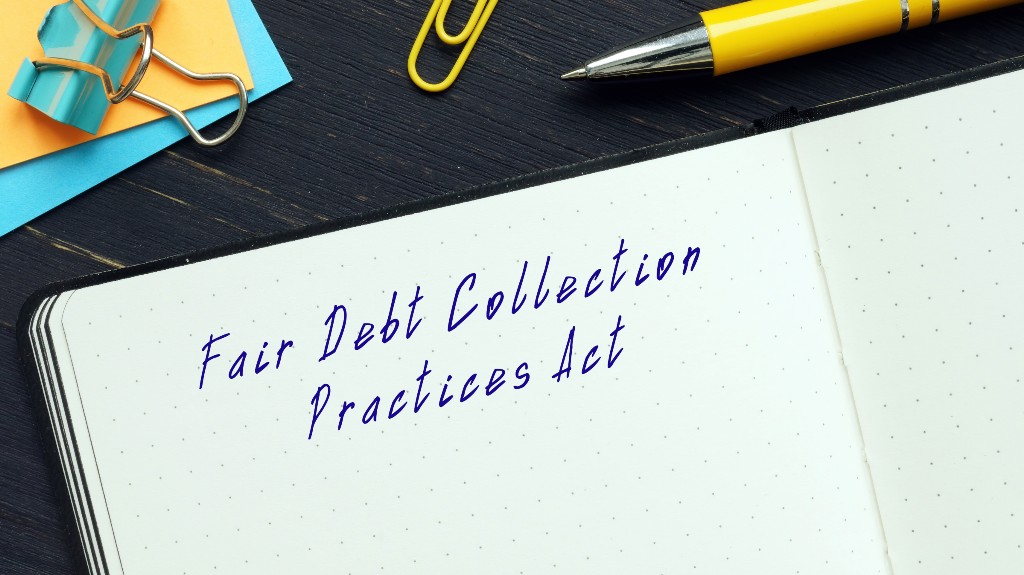When you’re experiencing debt collection calls and letters, to say it’s a stressful time is an understatement. However, you do have rights when it comes to debt collection that you should know.
In 1972, the Fair Debt Collection Practices Act (“FDCPA”) became law. The FDCPA is a consumer protection law that establishes individual protections against unreasonable, unfair, and abusive debt collection practices.

In November 2021, the FDCPA was amended, creating the Debt Collection Rule. This rule clarifies how debt collectors can communicate with you, including what information they’re required to provide at the outset of collection about the debt, your rights in debt collection, and how you can exercise those rights.”
Keep reading to learn more about the FDCPA and the new Debt Collection Rule.
1. What debts are covered under the FDCPA?
The following types of debts fall under the FDCPA:
- Credit card debt
- Auto loans
- Student loans
- Medical bills
- Mortgages
Business debt is not covered under the FDCPA.
2. When can debt collectors contact me?
Debt collectors cannot contact you before 8 a.m. or after 9 p.m. Howe er, if you agree to early or late contact, then a debt collector can contact you outside of that time frame. Debt collectors cannot contact you at work if you tell them that you’re not allowed to receive calls while working.
3. What are some ways that a debt collector may contact me?
Debt collectors can call you on your home phone (if you have one) or on your cell phone. Additionally, debt collectors can send you text messages emails, or letters about the debt you owe.
4. What actions are prohibited by the FDCPA?
Debt collectors cannot harass, threaten, or repeatedly annoy you. Additionally, they cannot use profane or obscene language.
Also, debt collectors cannot lie. For example, they cannot tell you that you owe an amount you don’t. They cannot pretend that they’re an attorney or from a government agency. Finally, they cannot tell you that you’ll be arrested or claim that they’re filing a lawsuit against you to collect the debt if it’s not true.
Finally, debt collectors cannot treat you unfairly. Collectors can’t collect additional fees, interest, or any other amounts that aren’t part of the amount you owe. Further, debt collectors can’t publicly reveal your debts, including putting the amount owed on envelopes or postcards that they send through the mail.
5. What does the new Debt Collection Rule do?
The new Debt Collection Rule clarifies how debt collectors can communicate with you. For example, when a debt collector initially contacts you, they are required to provide certain information to you in writing or electronically. This is called a “validation notice,” and includes information such as your name and mailing address, the name of the creditor to whom you owe money, any account numbers associated with the debt, and information about how to dispute the debt.
Additionally, the new Debt Collection Rule prohibits debt collectors from calling you more than seven times in a seven-day period or within seven days after discussing your debt on the phone.
To fully understand your rights under the FDCPA and the Debt Collection Rule, contact an experienced debt management attorney so they can ensure you are being treated fairly under the law.
Hiring an Augusta, Georgia Debt Management Lawyer
Finances – and debt management – can be overwhelming and stressful. Avoid the stress and enlist the help of a debt management attorney in Augusta, GA. The Law Firm of Seymour and Associates, P.C. can help you navigate through the debt management process, helping to pave the way for a better tomorrow. Contact us today to learn more.
